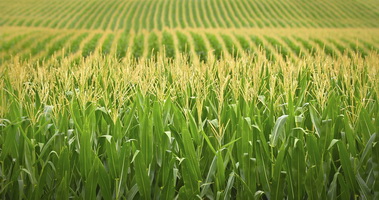Swaziland Approves Importation and Environmental Release of Bt Cotton |
|
The authority stated that the approval is subject to export and transit permits, which should be sought by the applicant or supplier. "The applicant and transporter should take full responsibility for the load in transit, and should be aware of the Emergency Response Measures of GMO consignments," read part of the approval notice. SEA also requires the cotton board to adhere to the requirements for conveyor shipment as dictated in Article 7 of the Cartagena Protocol on Biosafety on the Advance Informed Agreement procedure.
|
|
|
|
|
|
|
Corn Breaks Genetics Law |
 Some heirloom varieties of corn contain a cheater chromosome, called Abnormal chromosome 10 (Ab10). It cheats in the female part of the flower during meiosis, where it is regularly transmitted about 75 percent of the time instead of the normal 50 percent. Some heirloom varieties of corn contain a cheater chromosome, called Abnormal chromosome 10 (Ab10). It cheats in the female part of the flower during meiosis, where it is regularly transmitted about 75 percent of the time instead of the normal 50 percent.
|
|
|
|
|
African Women for Biosciences Platform Launched |
|
Women in biosciences remain grossly under represented in leadership and decision-making levels, limiting contribution of scientific research to national development. A new platform - the African Women for Biosciences (AWfB), launched on May 10, 2018 in Nairobi aims to address some of the challenges faced by women in biosciences. The event was part of Kenya's 7th National Science week celebrations under the National Commission for Science, Technology and Innovation (NACOSTI).
|
|
|
|
|
|
|

|
A biweekly update on gene editing research, regulations, and impact
produced by ISAAA Inc. |
| |
|
|

|
| A monthly update on gene drive research and development provided by ISAAA in collaboration with the Outreach Network for Gene Drive Research |
| |
|
|
|
|
GM APPROVAL UPDATES |
- The Philippines approved the canola event LBFLFK for food, feed, and processing.
- The Philippines approved the cotton event GFM cry1A for commercial cultivation.
- Brazil approved the wheat event HB4 for commercial cultivation.
- The Philippines approved the soybean event GMB 151 for food, feed, and processing.
- The Philippines approved the eggplant event EE-1 for cultivation
- The USA approved the canola event MON94100 for food and feed.
|
|
|
|
| Biotech Updates is a weekly newsletter of ISAAA, a not-for-profit organization. It is distributed for free to over 22,000 subscribers worldwide to inform them about the key developments in biosciences, especially in biotechnology. Your support will help us in our mission to feed the world with knowledge. You can help by donating as little as $10. |
|
|
|
|